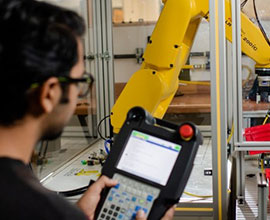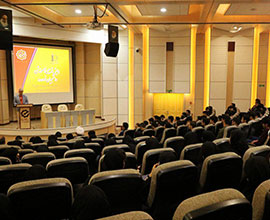
زمان برگزاري: دوشنبه 20 فروردين 1397
Title: Brittle-ductile fracture of silicon anode in Li-ion battery
Speaker: Dr. Mostafa Khosrownejad
Post-doctoral in EPFL,Lausanne, Switzerland
Abstract: Silicon is among the highest Li-storing anode materials in Li-ion batteries, but the large capacity is accompanied by significant volume expansion that causes mechanical failure and capacity fading after few charging/discharging cycles. Fracture is the main cause of degradation and capacity fading in lithiated silicon during cycling. Experiments on the fracture of lithiated silicon show conflicting results, and so mechanistic models can help interpret experiments and guide component design. Here, large-scale K-controlled atomistic simulations of crack propagation for as-quenched/relaxed samples and for samples created by discharging from higher Li compositions is performed. In all cases, the fracture mechanism is void nucleation, growth, and coalescence. Plane-strain equi-biaxial expansion simulations of uncracked samples provide complementary information on void nucleation and growth. The simulations are interpreted within the framework of Gurson model for ductile fracture and good agreement is found. In spite of flowing plastically, and expectance of ductile fracture, the fracture toughness of LixSi is low (brittle like) because voids nucleate within nano-sized distances ahead of the crack. Scaling simulation results to experimental conditions, reasonable agreement with experimentally-estimated fracture toughnesses is obtained. The discharging process facilitates void nucleation but decreases the flow stress, leading to enhanced fracture toughness at all levels of crack growth. Therefore, the fracture behaviour of lithiated silicon at a given composition is not a material property but instead depends on the history of charging/discharging and rate of loading.





